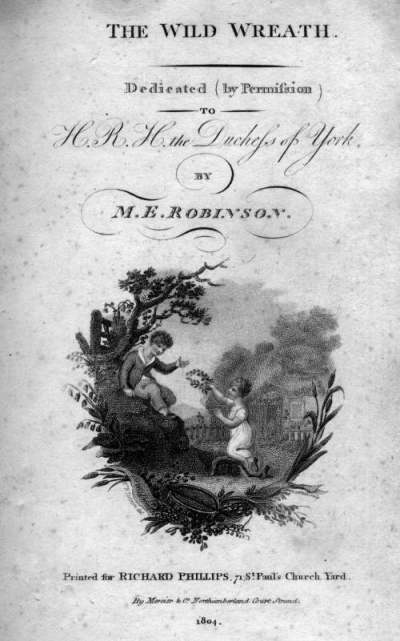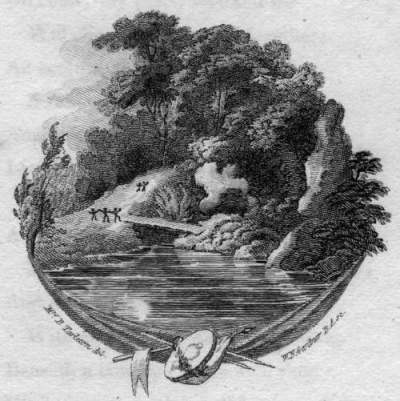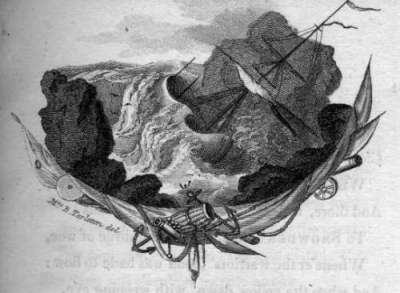|

"Fairy Visions"

|
The Wild Wreath, a poetry anthology compiled by Mary Robinson's
daughter, Maria Elizabeth, and published in 1804, contains poems by Mary, Maria Elizabeth,
Robert Merry, "Monk" Lewis, Samuel T. Coleridge and others.
A few of the poems are credited only as by "Susan," and I can't help wondering if they might
not be by Susan Tarleton. One bears the title "To a False Friend" and expresses a
mood of anger and betrayal fitting to the troubled first years of Susan's married life. The title, of
course, echoes that of a novel written a decade earlier by Mary Robinson, which (arguably) may
represent an attack on Tarleton.
Whether or not the poem (presented below) is by the same "Susan" the five illustrations
engraved for The Wild Wreath are clearly credited as by Mrs. B. Tarleton.
Reproduced here are the three most interesting examples.
TO A FALSE FRIEND
[p146]
AWAY, thou false one! thou the destin'd bane
Of all my bliss! -- Yet would I still restrain
The bitter thoughts that falter on my tongue;--
I , that ne'er did, nor wish'd to do, thee wrong:
I , that would willingly have sacrific'd
All that by frail mortality is priz'd,
That unto thee those blessings might belong:
At me thou aim'st the unresisted dart,
And the remorseless arrow sinks into my heart!
False friendship is thy name! -- I know thee well.
How have I suffer'd from that baneful spell
Which 'round my bosom, in a luckless hour,
Thou artfully didst twine! But now thy pow'r
[p146]
I heed no more: no more thy falling tears
Can wound my heart with sympathetic fears,
And bid each blooming early prospect lour:
Not e'en thy smiles can any more impart
The balm of consolation to my alter'd heart.
Once did I hope, dup'd by a youthful dream,
That on my future life the soften'd beam
Of thy pure love would shine; that in thy breast
Each secret thought of mine might safely rest;
That in my sorrows thou did'st bear a part,
And all my joys came doubled to thy heart:--
But it was false! -- Yet, be each sigh represt!
Thou art not worthy of my parting tear,
Since to a faithful friend thou could'st be insincere
"The Foster Child"

|



